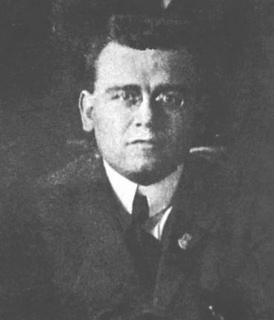A Quote by Tom Reiss
The French Revolution was a kind of 21st-century moment in the heart of the 18th century - and Alex Dumas, outstanding though he was, could never have risen the way he did if not for that. The French Revolution was the American Revolution on steroids.
Related Quotes
In comparison to the French Revolution, the American Revolution has come to seem a parochial and rather dull event. This, despitethe fact that the American Revolution was successful--realizing the purposes of the revolutionaries and establishing a durable political regime--while the French Revolution was a resounding failure, devouring its own children and leading to an imperial despotism, followed by an eventual restoration of the monarchy.
The transformations of the French empire itself or of French power structures themselves as well as the emergence of a kind of language of equal rights starting with the American Revolution and the French Revolution provided an opportunity and in some ways connected with other kinds of ground level desires or hopes and ideologies for freedom that were coming out of the plantation regime itself.
It was a real revolution. But with one missing feature. That is the feeling in a people that "We have done it once, and if the new lot let us down, we can do it again!" It was that proud, menacing confidence which made the French revolution special. But it's not around in 21st-century Europe. After 1989, the people handed over liberty to the experts. Will they ever want it back?
A revolution is bloody, but America is in a unique position. She's the only country in history in a position actually to become involved in a bloodless revolution. The Russian revolution was bloody, Chinese revolution was bloody, French revolution was bloody, Cuban revolution was bloody, and there was nothing more bloody then the American Revolution. But today this country can become involved in a revolution that won't take bloodshed. All she's got to do is give the black man in this country everything that's due him, everything.
But above all, what this Congress can be remembered for is opening the way to a new American revolutiona peaceful revolution in which power was turned back to the peoplein which government at all levels was refreshed and renewed and made truly responsive. This can be a revolution as profound, as far-reaching, as exciting as that first revolution almost 200 years agoand it can mean that just 5 years from now America will enter its third century as a young nation new in spirit, with all the vigor and the freshness with which it began its first century.
Human rights did not begin with the French Revolution...[they] really stem from a mixture of Judaism and Christianity...[we English] had 1688, our quiet revolution, where Parliament exerted its will over the King...it was not the sort of Revolution that France's was...'Liberty, equality, fraternity' - they forgot obligations and duties I think. And then of course the fraternity went missing for a long time.
The French Revolution, Fichte's Theory of Knowledge, and Goethe's Wilhelm Meister are the three greatest tendencies of the age. Whoever takes offence at this combination, and whoever does not consider a revolution important unless it is blatant and palpable, has not yet risen to the lofty and broad vantage point of the history of mankind.
The degeneration of the revolution in Russia does not pass from the revolution for communism to the revolution for a developed kind of capitalism, but to a pure capitalist revolution. It runs in parallel with world-wide capitalist domination which, by successive steps, eliminates old feudal and Asiatic forms in various zones. While the historical situation in the seventeenth, eighteenth and nineteenth centuries caused the capitalist revolution to take liberal forms, in the twentieth century it must have totalitarian and bureaucratic ones.
A revolution is bloody. Revolution is hostile. Revolution knows no compromise. Revolution overturns and destroys everything that gets in its way. And you, sitting around here like a knot on the wall, saying, “I’m going to love these folks no matter how much they hate me.” No, you need a revolution. Whoever heard of a revolution where they lock arms, as Reverend Cleage was pointing out beautifully, singing “We Shall Overcome”? Just tell me. You don’t do that in a revolution. You don’t do any singing; you’re too busy swinging.
































